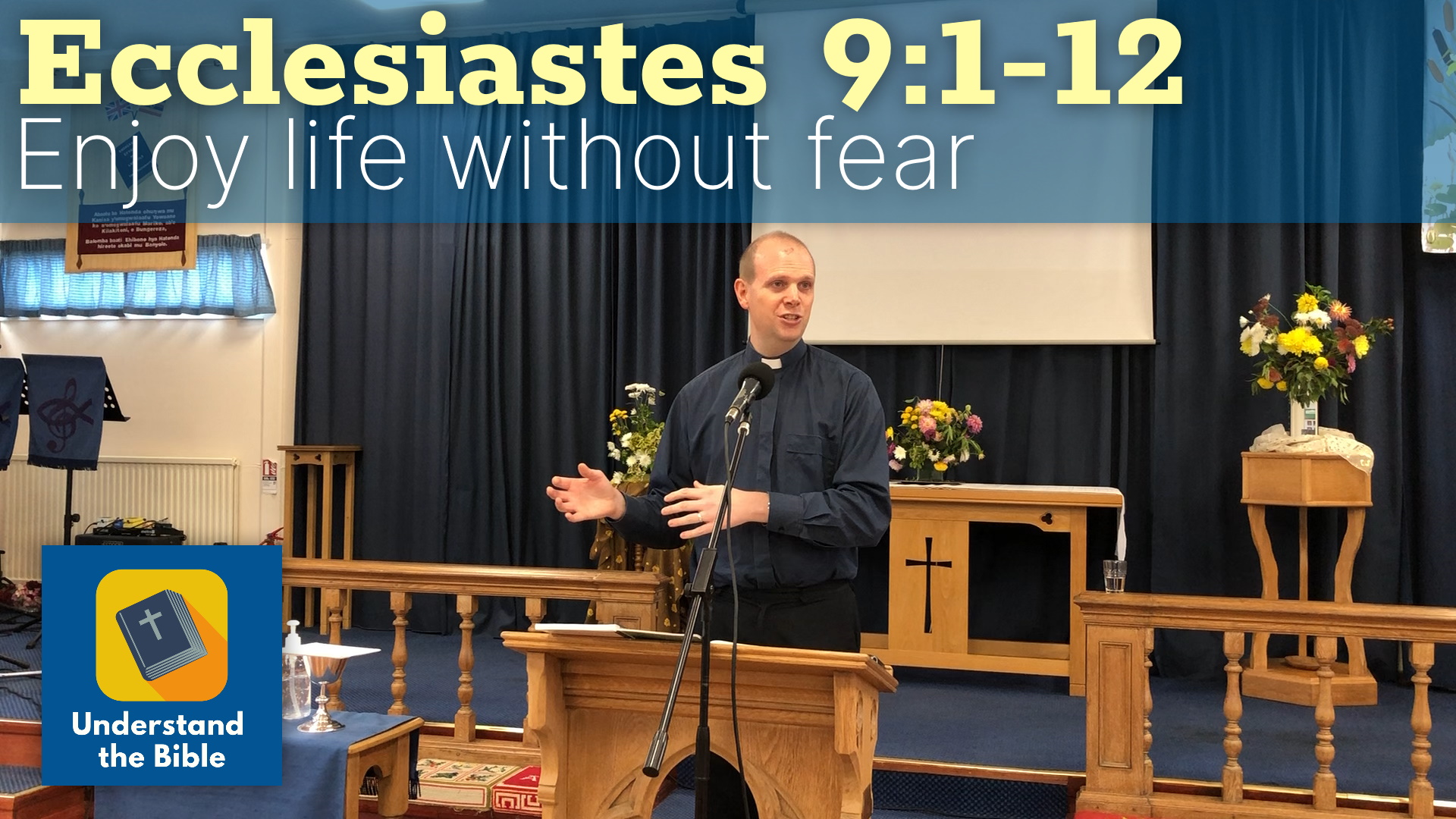A short reflection on how death teaches us the meaning of life, from Ecclesiastes chapter three.
The last few months have caused many of us to reflect on the deeper questions of life. The daily press briefings giving an account of the number of people who have died from covid have made us all reflect on our own mortality. Perhaps you have been thinking about these questions. Perhaps you’ve been wondering what it all means. Why do we have to die? Why is that people’s lives are cut short? Why is it that we seem to desire more from life?
What Ecclesiastes teaches about life and death
In our church’s midweek service, we have started studying a book of the Bible called Ecclesiastes. One of the things I value about Ecclesiastes is that it doesn’t shrink back from the big questions. Ecclesiastes is a book which is refreshingly honest about death. For example, consider these words from Ecclesiastes 3:19-20:
Surely the fate of human beings is like that of the animals; the same fate awaits them both: as one dies, so dies the other. All have the same breath; humans have no advantage over animals. Everything is meaningless. All go to the same place; all come from dust, and to dust all return.
The writer of Ecclesiastes, who calls himself the Teacher, says that human beings and animals share equally in death. And so, he says, we have no advantage over animals.
And he’s absolutely right, isn’t he – it is our fate regardless of what happens in life. Whether we’ve been rich or poor, a somebody or a nobody, hard working or lazy, we’re all going to end up in a box six feet under. That is the common fate of humanity: whether you die of covid, or whether you die young or old – it doesn’t matter. The word the Teacher uses is “meaningless”.
When we really consider death and all that it means, it makes us feel uncomfortable. It seems so unfair, so arbitrary, so meaningless. How can human life be so wonderful and at the same time so short? We never seem to get all that we want out of life!
Looking for the deeper truth
This is where it’s important to listen further to Ecclesiastes. The Teacher isn’t trying to make us depressed in thinking about death – he is trying to teach us a deeper truth. That is, death should actually teach us the meaning of life. Earlier on in Eccl 3, the Teacher says God “set eternity in the human heart”. All human beings have an understanding of eternity. We yearn for that which is beyond our current experience.
On June 8th 1941, C.S. Lewis preached a sermon called The Weight of Glory, in my opinion one of his most insightful pieces. He talks about the fact that we all have a desire for “something that has never actually appeared in our experience”. We sometimes catch a glimpse of it in a book, or music, or a good meal, or friends or family, but they never seem to satisfy in the way that they should. He says:
These things—the beauty, the memory of our own past—are good images of what we really desire; but if they are mistaken for the thing itself they turn into dumb idols, breaking the hearts of their worshippers. For they are not the thing itself; they are only the scent of a flower we have not found, the echo of a tune we have not heard, news from a country we have never yet visited.
He goes on to say that the desire that we have is actually a desire for the greater, eternal things that mankind was created for – for God and his glory.
Where to find true happiness
This is the point that C.S. Lewis, and Ecclesiastes, are making: if we see this life as everything there is, and all our happiness is to be found here, we will never be happy. Death should teach us that the things of this life are not ultimate. The pleasures of this life are fleeting and temporary. Rather than seeking them as an end in themselves, we should look instead to the giver of these gifts, the God who gives meaning to our lives.
It is only in him and through him that our lives begin to find meaning. He is the Alpha and the Omega, the beginning and the end. When we seek him, and submit our lives to him, our lives start to take on the meaning we are seeking. And we can trust that the one who defeated death and brought life and immortality to light through the gospel will raise us up to eternal life.
So let us pray, as Moses did in the words of Psalm 90:
Teach us to number our days,
that we may gain a heart of wisdom.
This was a short Thought for the Week I wrote and recorded for our local ‘Talking Times’, an audio newspaper for those who are visually impaired.
Want more? You can see all posts on Ecclesiastes here.





